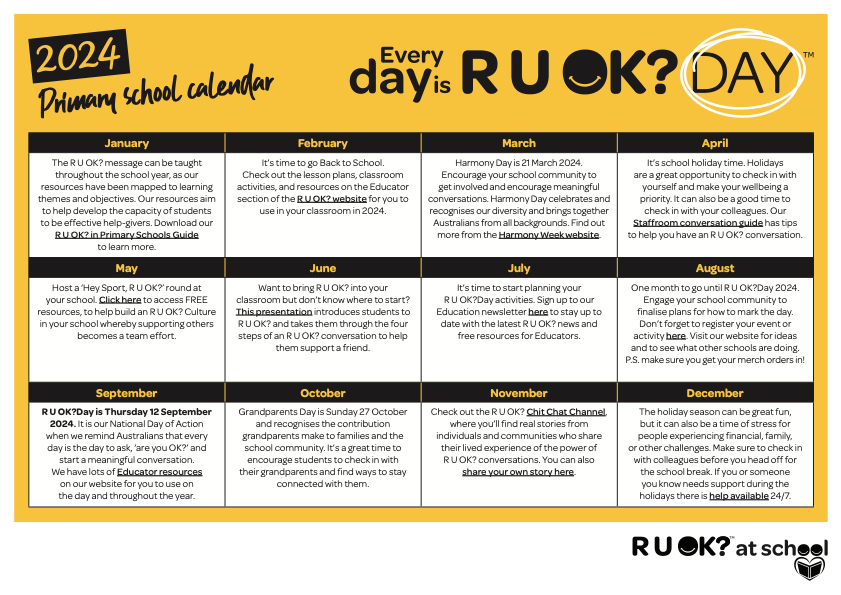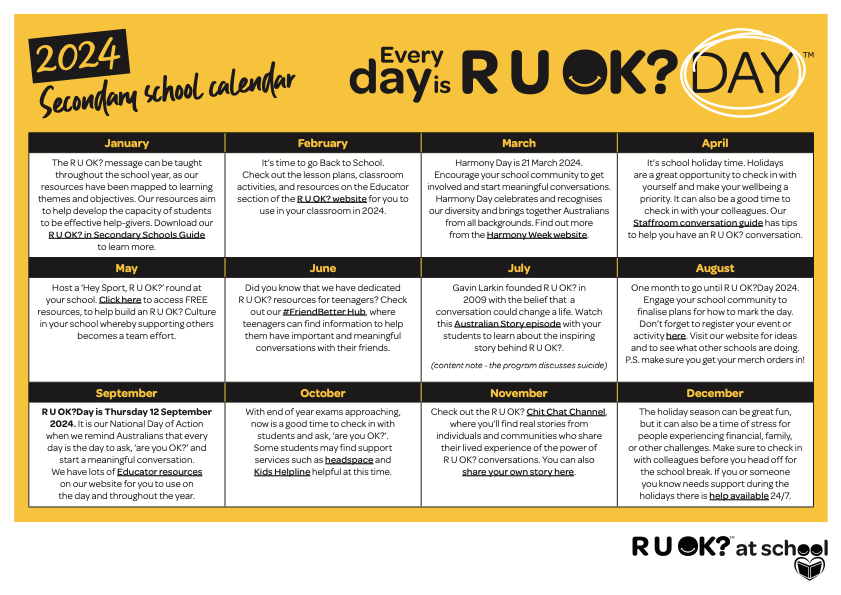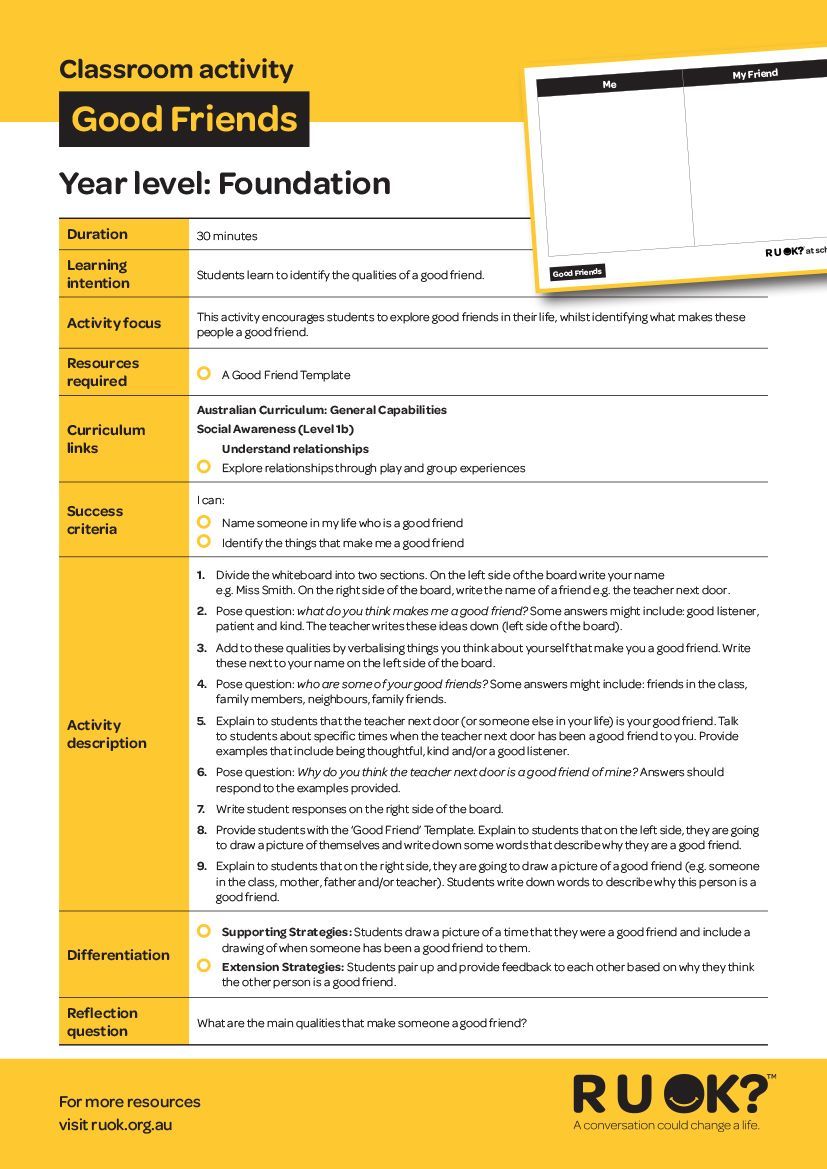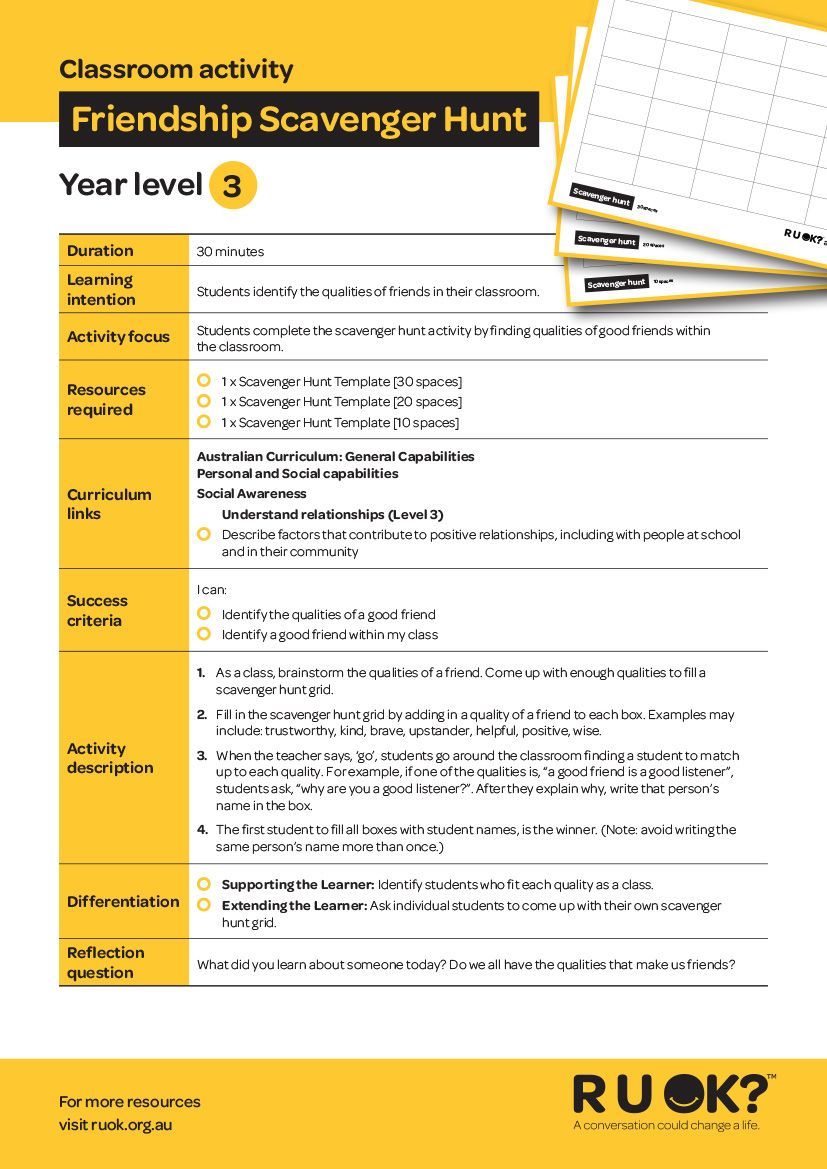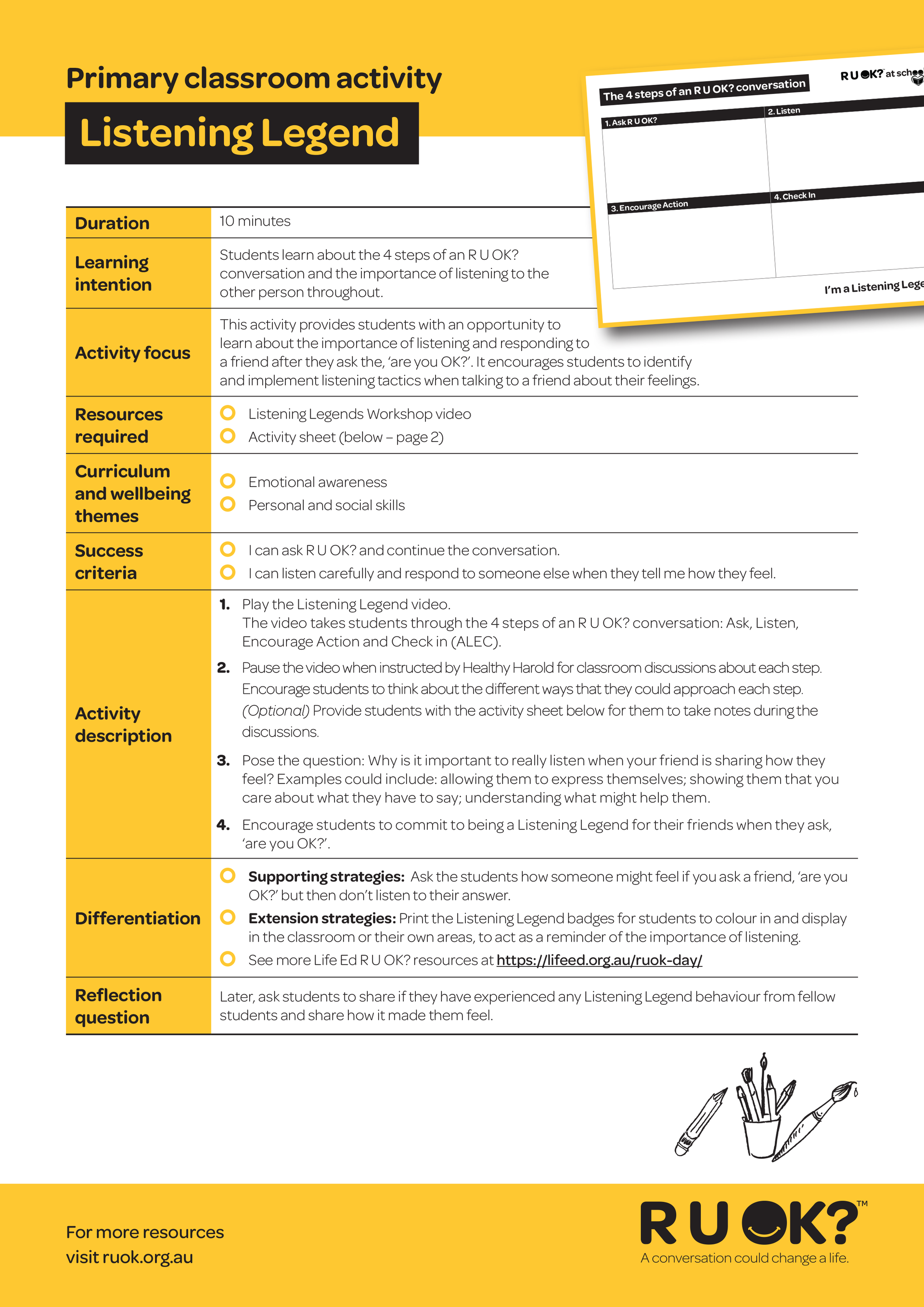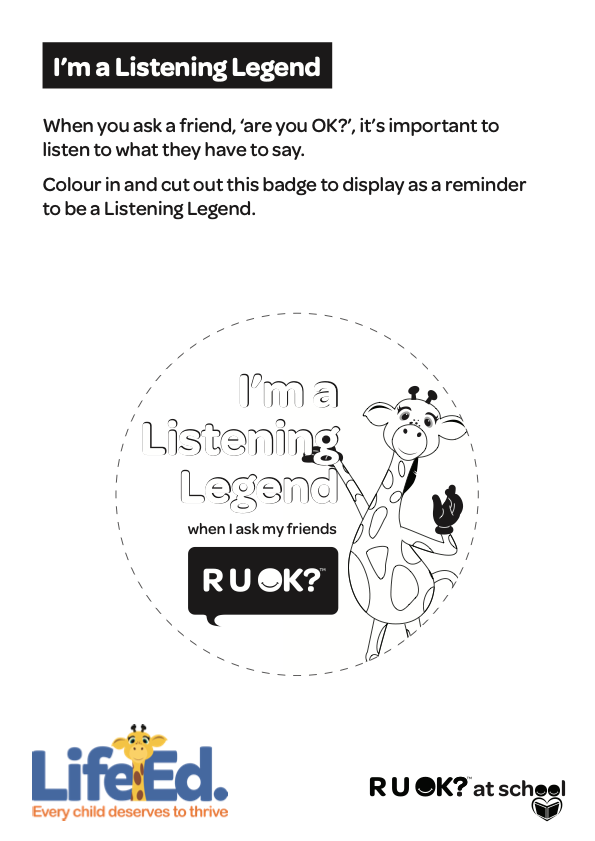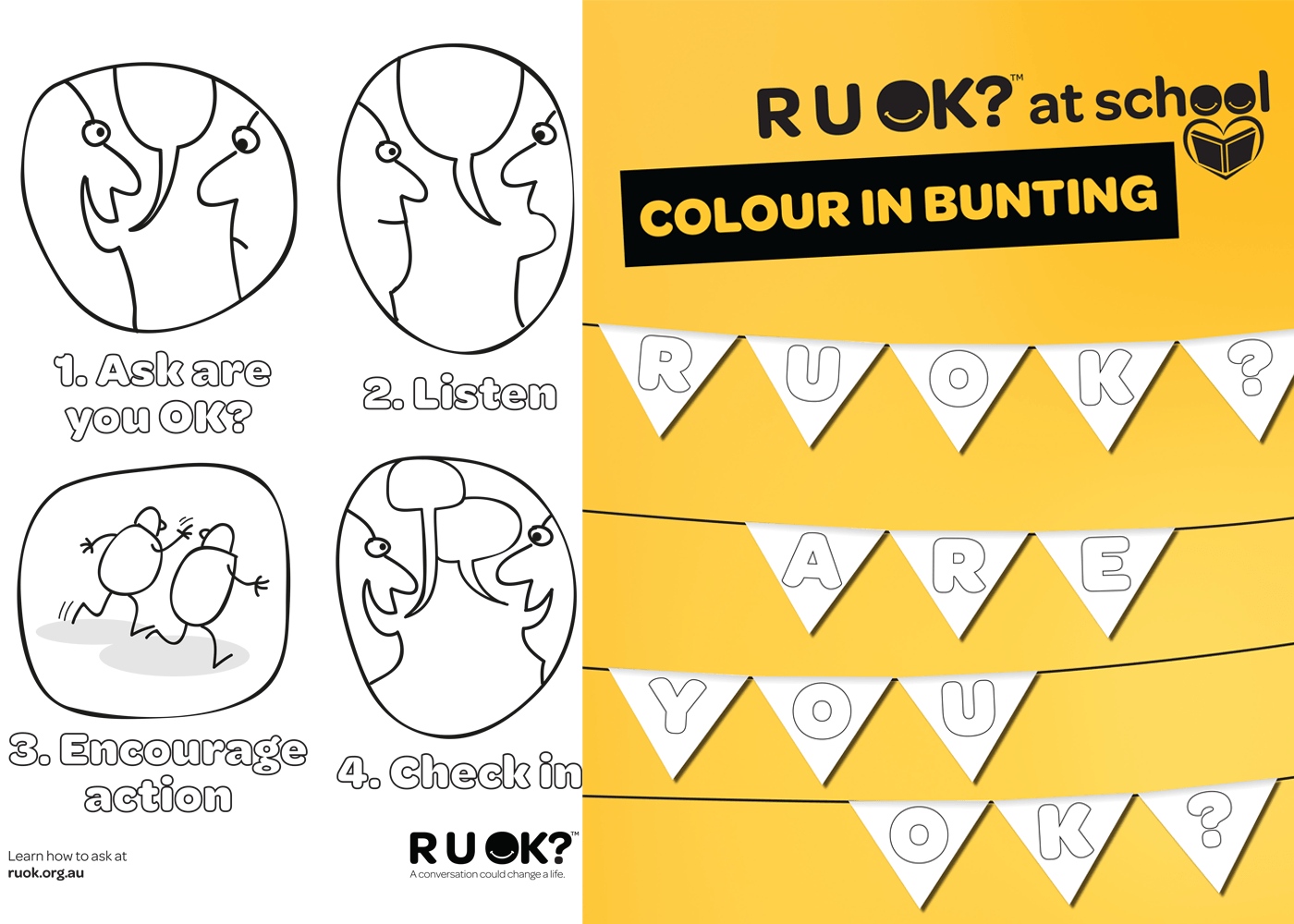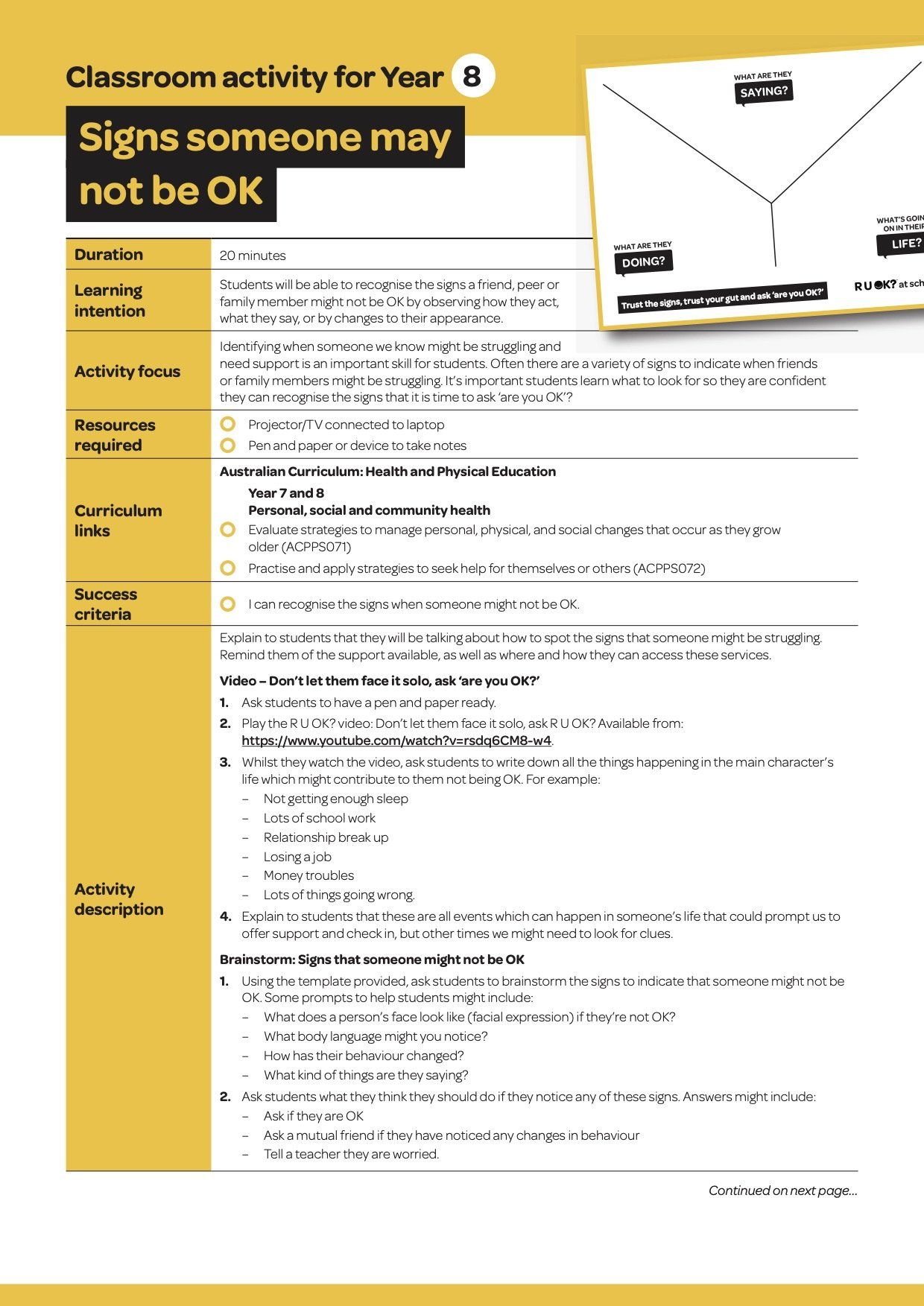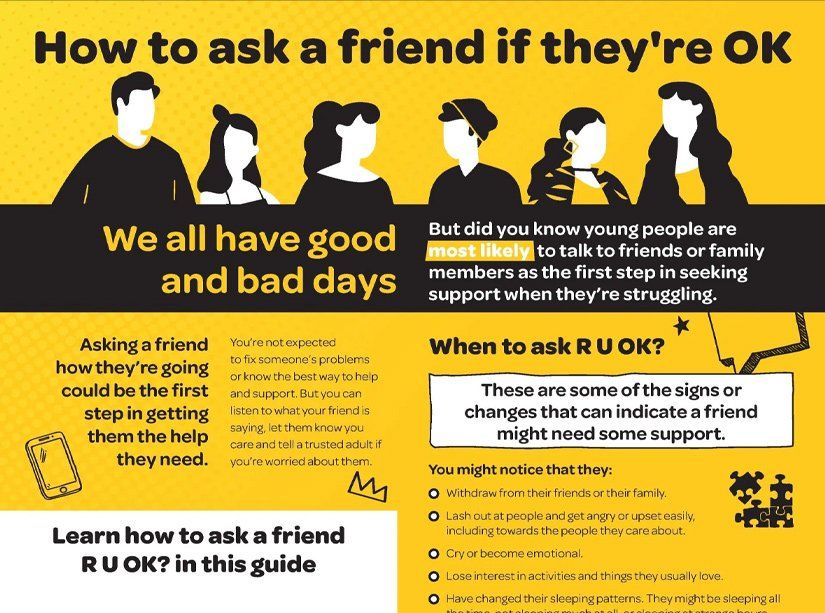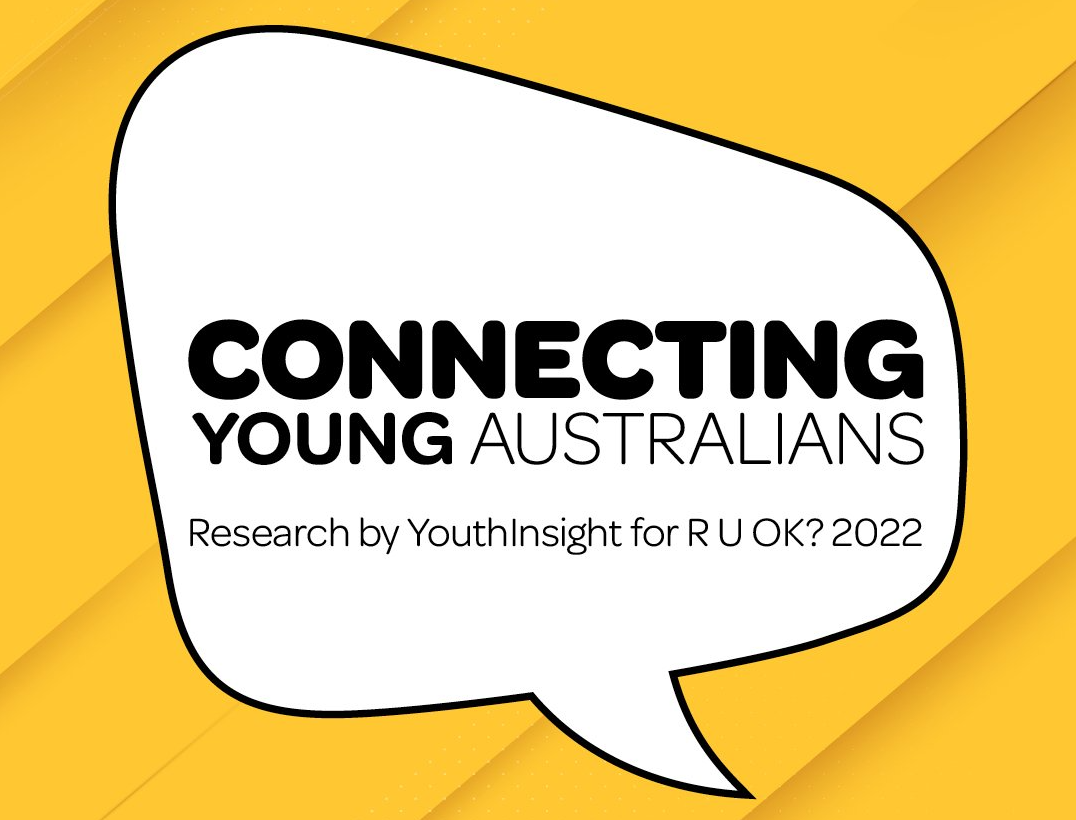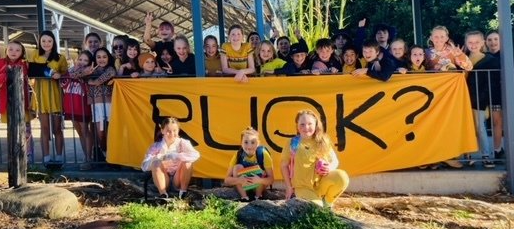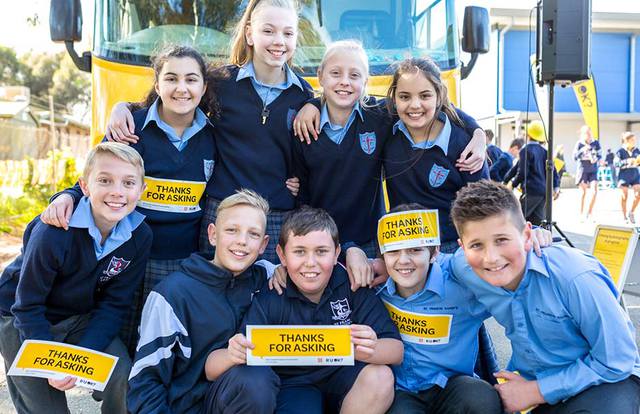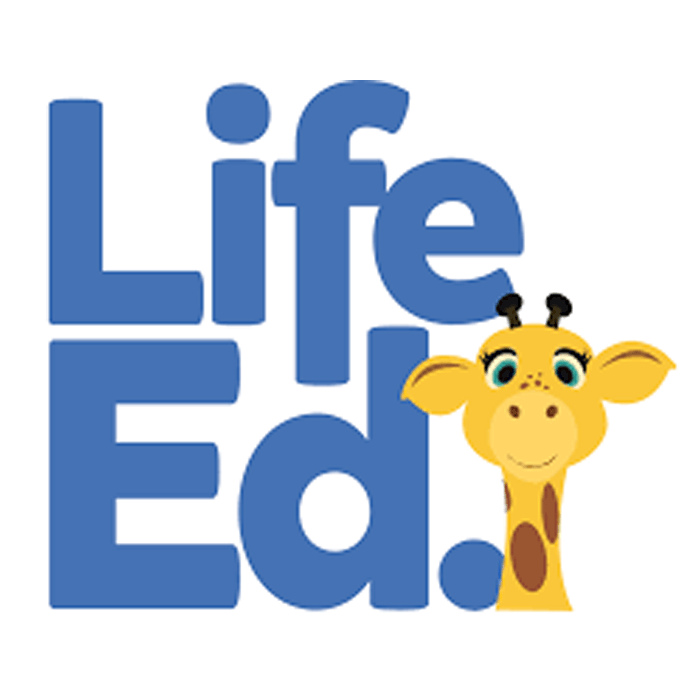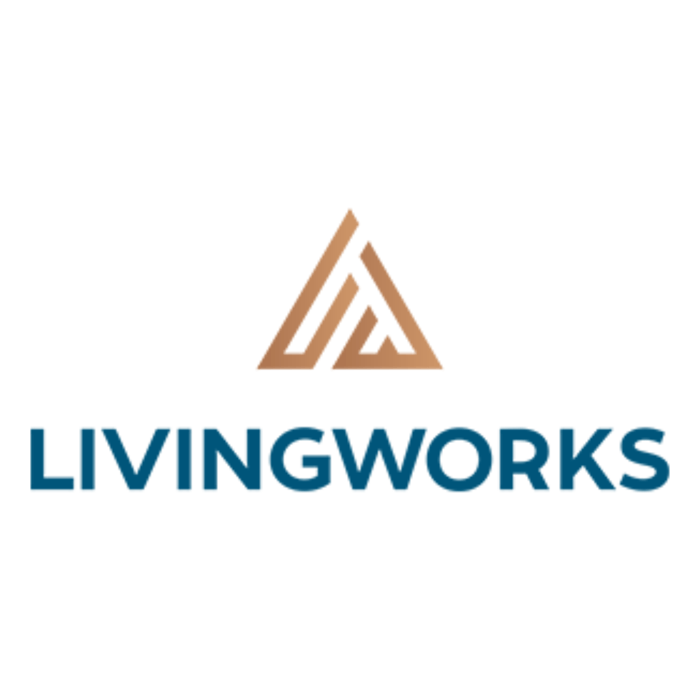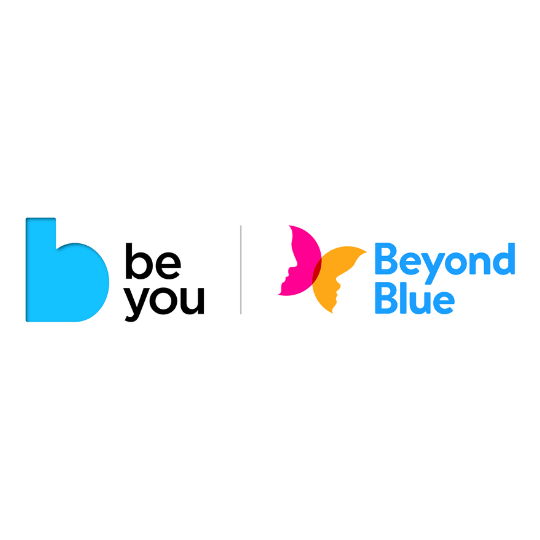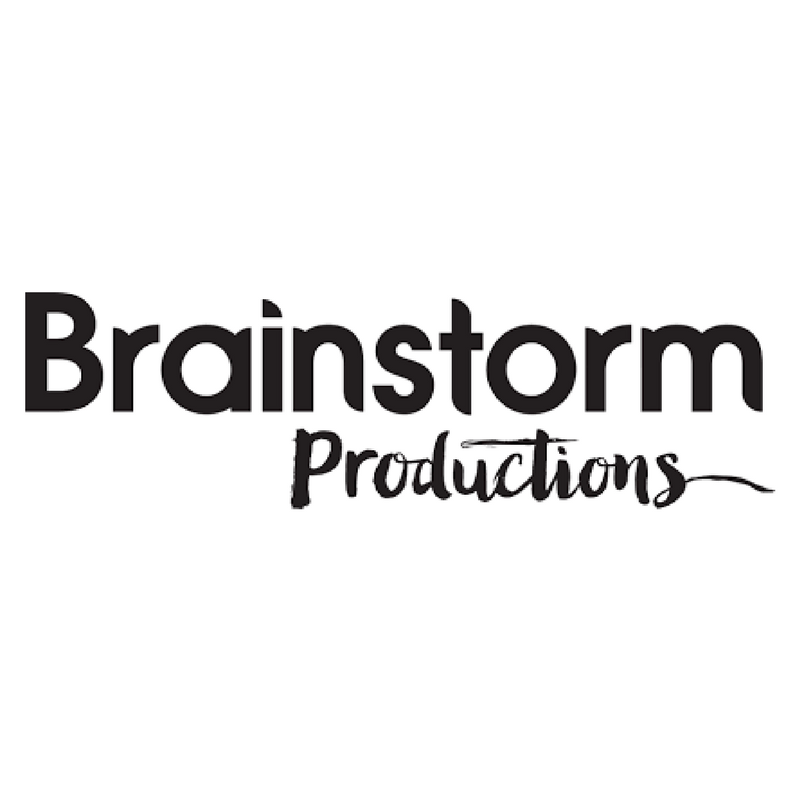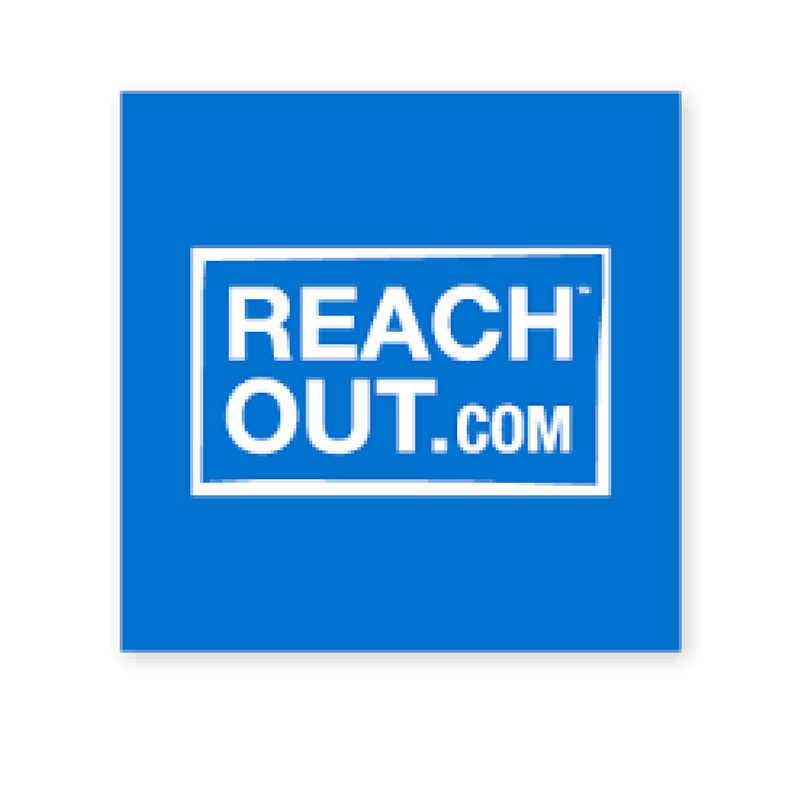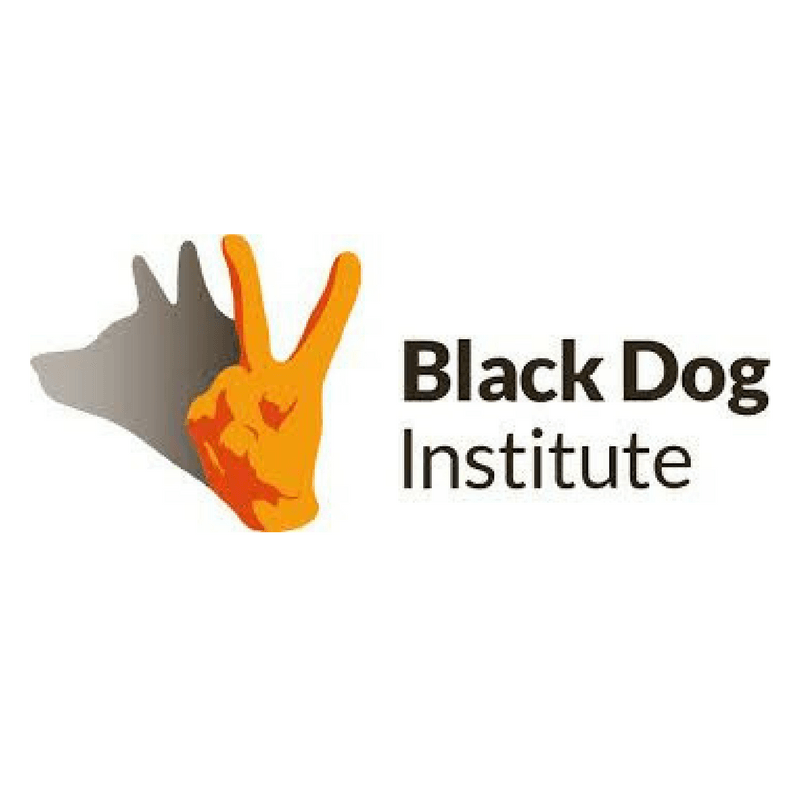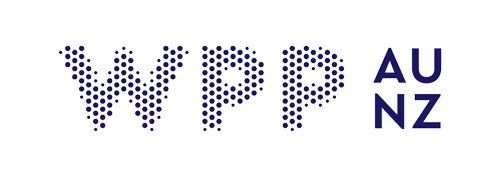R U OK? RESOURCES FOR EDUCATORS
RESOURCES TO HELP YOU SHARE THE MESSAGE
For students, learning how to support their peers and talk about how they feel is an important life lesson, so where better to start than in the classroom? These resources for primary, secondary and tertiary educators and institutions will help students everywhere start a conversation.
JOIN OUR EDUCATION MAILING LIST
R U OK? EVERY DAY
R U OK?Day (Thursday 12 September 2024) is our National Day of Action and provides an ideal opportunity to engage students and the wider school community with the values of R U OK?
But you can encourage and support an R U OK? Culture every day of the year. As you head back to school, our 2024 R U OK? at School calendars highlight key dates and provide ideas and activities that you can use throughout the year. Calendars are in PDF format can be downloaded below.
PRIMARY SCHOOL RESOURCES
CLASSROOM LESSON PLANS
Help students learn how they can support each other and be good friends. Each activity is mapped to the Australian curriculum and includes an activity template, description and differentiation strategies.
These activities were created in collaboration with Educators, Sarah Weston and Rebecca Rawson.
Stage 1
-
Foundation: Body responses and feelings
Button -
Year 1: Learning to Ask R U OK?
Button -
Year 2: When to Ask R U OK?
Button
Stages 2 and 3
-
Year 3: Identifying people to talk to
Button -
Year 4: Support networks
Button -
Year 5: Asking R U OK? your way
Button -
Year 6: The continuum of feelings
Button
LISTENING LEGENDS WORKSHOP FOR PRIMARY SCHOOLS
This free 10-minute workshop, produced in collaboration with Life Ed, features Healthy Harold taking students through the 4 steps of an R U OK? conversation.
Teachers can pause the video at the end of each section for classroom discussion. There’s a printable worksheet that goes with the video activity, but the video can easily be played without it.
Also check out the Listening Legends badge for students to colour in and display as a year-round reminder of the importance of listening.
How can R U OK? be used in classrooms?
The R U OK? message can be taught throughout the school year as it can be mapped to the Australian Curriculum, integrated into pastoral care and wellbeing lessons via the Australian Student Wellbeing Framework and used to help address the Be You domains.
Download our R U OK? in Primary Schools Guide to understand how R U OK? fits within these frameworks.
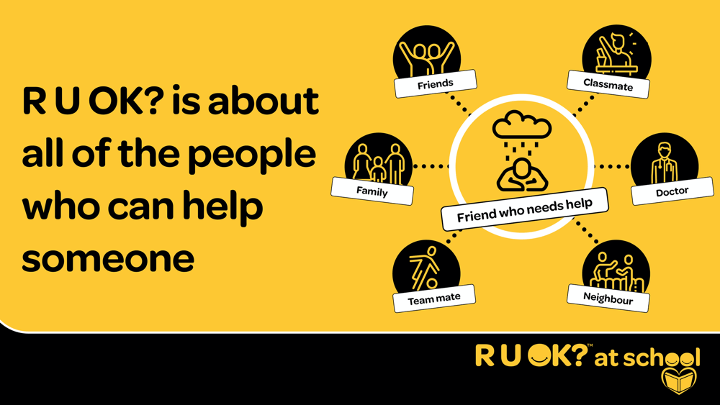
R U OK? POWERPOINT PRESENTATION
This presentation can be utilised by anyone who wants to introduce primary school students to R U OK?. It introduces students to R U OK? and the four steps of an R U OK? conversation to support a friend.
The presentation includes presenter scripts and suggested class questions in the speaking notes, as well as some editable sections to allow for local school services to be promoted with students if relevant.
ACTIVITIES AND DISPLAY TEMPLATES
Print and go templates for your classroom. These templates can be used as a teaching stimulus and will help you create an R U OK? classroom display.
HOW TO BE A GOOD FRIEND AND ASK R U OK?
While children can't be expected to fix someone’s problems, they can be encouraged to listen to what their friend is saying, show they care and tell a teacher, school counsellor or trusted adult if they are worried about their friend. This video shows them how to do that.
TOGETHER IT'S OK! VIDEO
R U OK? has created a music video to encourage children from Kindergarten to Year 6 to take the time to comfort their friends when they're feeling blue. Watch and share to show the young people in your world that it’s lighter when we share the load!
R U OK? WITH HEALTHY HAROLD
R U OK? and Life Education have teamed up to create this video lesson for primary school students of all ages. In this 3 minute video, Healthy Harold and his friends Jack and Violet provide practical advice for students to help them support their friends.
SECONDARY SCHOOL RESOURCES
CLASSROOM ACTIVITIES
Classroom activities to help students be good mates and ask, 'are you OK?'. These wellbeing lesson plans are aligned to the Australian curriculum and include a variety of teaching strategies in a step-by-step format for easy implementation.
-
Year 7: Different Ways to Ask R U OK?
Button -
Year 8: Signs Someone May Not Be OK
Button -
Year 9: When to Connect with Someone
Button -
Year 10: Listening & Responding
Button -
Year 11: What Support is Available
Button -
Year 12: Checking in with a Mate
Button
How can R U OK? be used in classrooms?
The R U OK? message can be taught throughout the school year as it can be mapped to the Australian Curriculum, integrated into pastoral care and wellbeing lessons via the Australian Student Wellbeing Framework and used to help address the Be You domains.
Download our R U OK? in Secondary Schools Guide to understand how R U OK? fits within these frameworks.
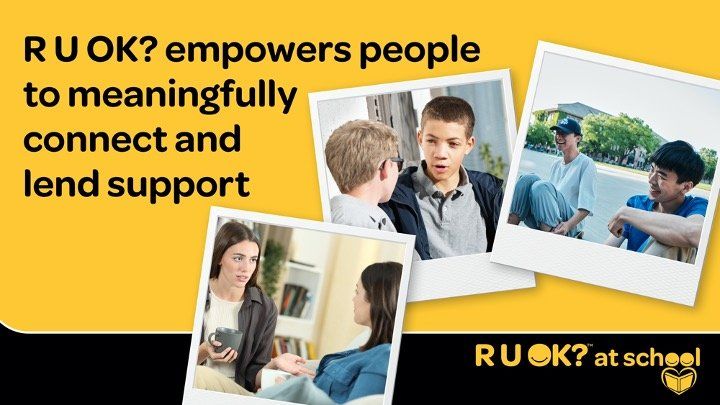
R U OK? POWERPOINT PRESENTATION
This presentation can be utilised by anyone who wants to introduce secondary school students to R U OK?. It takes students through the signs that someone might be struggling and the four steps of an R U OK? conversation.
The presentation includes presenter scripts and suggested audience questions in the speaking notes, as well as some editable sections to allow for local support services to be promoted with students
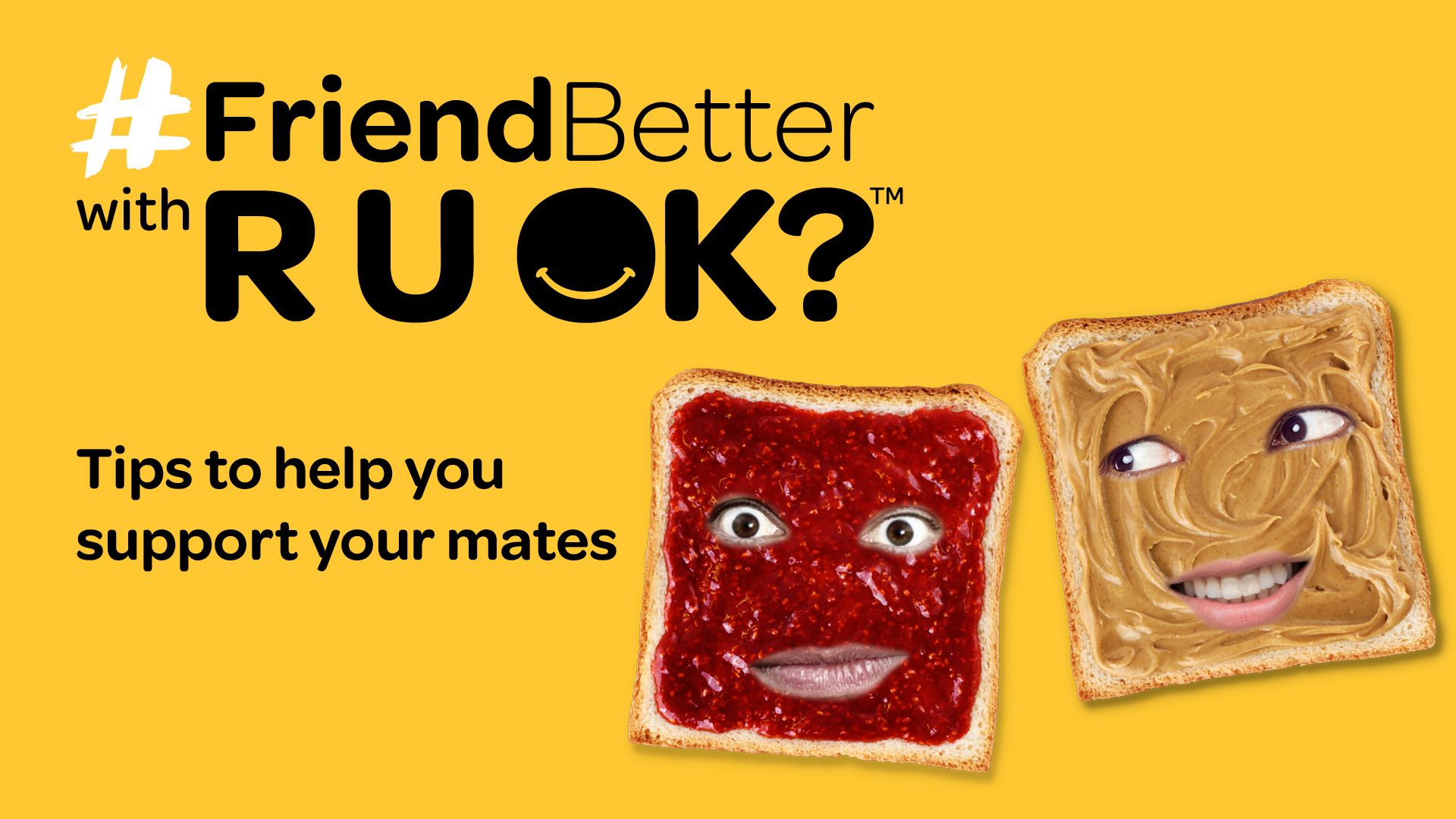
#FRIENDBETTER WITH R U OK?
Like good friends, some things are just better together. The support of a good mate can help someone feel connected and supported as they navigate life's ups and downs.
That's why we've put together the #FriendBetter with R U OK? resources, to help you learn how to spot the signs a mate is struggling and to have important conversations.
GUIDES AND ACTIVITIES
Youth Conversation Guide
Share this conversation guide with your students to help them navigate an R U OK? conversation and empower them to help the people in their world.
Mural Builder
Use these templates to create an R U OK? mural in an open, visible space in your environment and leave it displayed beyond R U OK?Day.
Conversation Bingo
Help your group practice their conversation skills by encouraging them to ask open ended questions using this bingo activity.
THE FOUR STEPS OF AN R U OK? CONVERSATION
R U OK? ambassador Barry Conrad takes us through the 4 steps of an R U OK? conversation: Ask, Listen, Encourage action and Check in (ALEC).
ASK R U OK? NO QUALIFICATIONS NEEDED
Young R U OK? ambassadors share their tips for connecting with friends, classmates and family and how they ask, 'are you OK?'. This video can be used in school presentations.
HOW TO BE A GOOD MATE
Alec and Jenny are mates but Alec has noticed that lately Jenny doesn't seem her usual self. In this video, we learn how he can be a good friend by talking to Jenny about what might be troubling her.
HOW TO ASK A SCHOOLMATE R U OK?
Toby hasn't seemed himself lately and his mate Ella is worried about him. In this video we learn what signs Ella noticed and the steps she followed when asking, 'are you OK?'.
EDUCATOR WELLBEING
R U OK? commissioned research agency YouthInsight to conduct research to inform our work to support young Australians aged from 12 to 25 years. This document is a summary of the findings and insights from the research.
R U OK? have primarily focused on reaching young people in educational settings, with our school resources being widely utilised. This research will help us better understand the needs and experiences of young people as we work to build the capacity of all Australians to support each other.
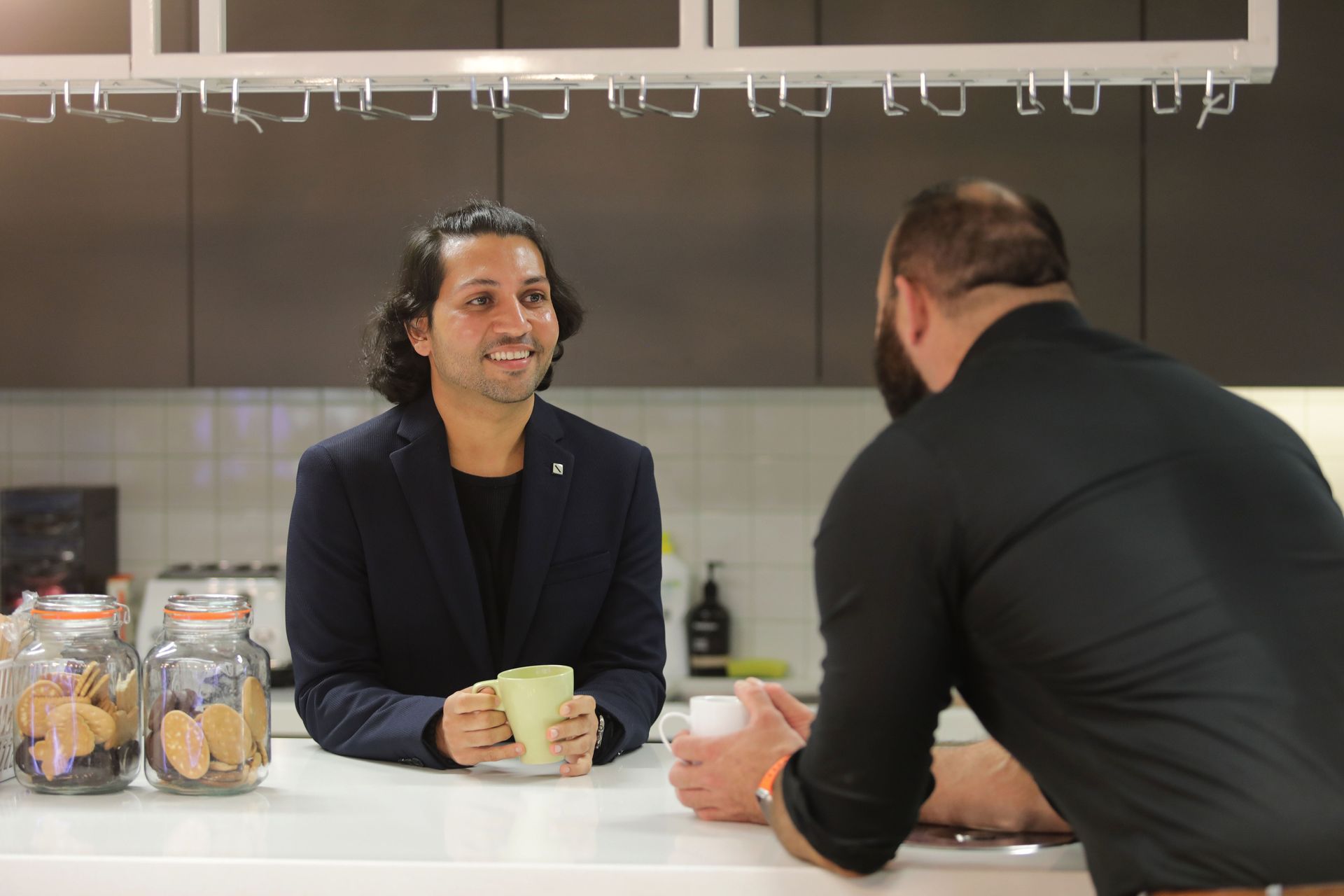
A place where asking the question “Are you OK?” can really work is in the workplace. As employers or staff, we can all create a culture where people feel confident asking and answering this simple yet important question. Besides our legal responsibility of providing a safe and healthy workplace, these conversations can make a real difference to staff going through a tough time.
Use our R U OK? at Work resources to get the conversations flowing in your workplace and to equip staff and workmates to ask R U OK? in a safe and supportive way.
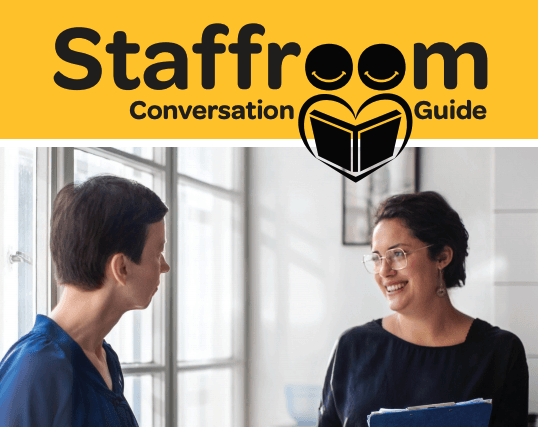
As a school staff member you may find yourself in a position where you are offering support to colleagues, students and families. These conversations can sometimes be challenging and difficult to navigate, however this guide will help you build confidence and empower you as a help-giver so you can contribute to a culture that ensures all members of your school community feel safe and supported.
This practical conversation guide includes information on how and when to ask “Are you OK?” and also how to respond appropriately to anyone who says, “No. I’m not OK.”
Schools right across Australia hold events to help their communities connect and have meaningful conversations. Here are some of their stories.
R U OK? DAY
R U OK?Day is our National Day of Action dedicated to reminding everyone that every day is the day to ask, 'are you OK?' and support those struggling with life's ups and downs. R U OK?Day is marked on the second Thursday of September and the next R U OK?Day is Thursday 12 September 2024.
In addition to the schools resources below, we have free resources available for R U OK?Day such as posters, social tiles, videos and more on the Join R U OK?Day page .
You can also register your R U OK?Day event to stay up to date with the latest resources and information.
OTHER RESOURCES TO HELP GET STUDENTS TALKING
-
Brainstorm Productions
Learn more -
ReachOUT.com
Learn more -
MindMatters
Learn more
-
Brainstorm Productions
Learn more -
ReachOUT.com
Learn more -
Movember
Learn more
Sign up to our newsletter for conversations tips, news and insights from our staff, experts and supporters.


